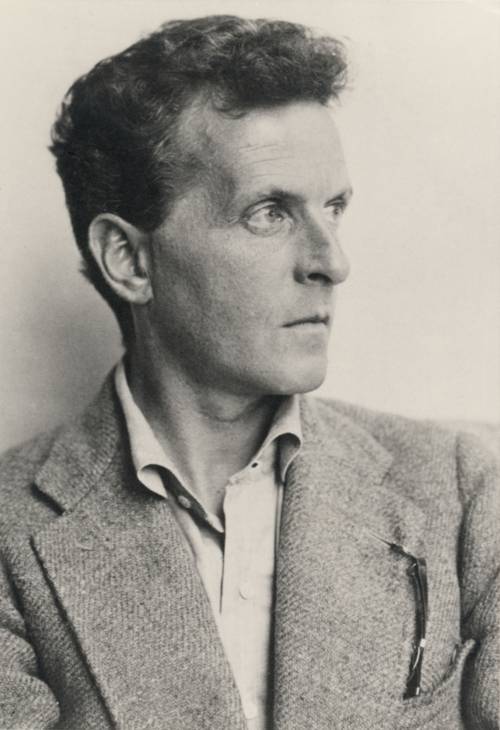
FAQ About Ludwig Wittgenstein

Who was Ludwig Wittgenstein?
Ludwig Wittgenstein was an Austrian-British philosopher known for his work on the philosophy of language, mind, and logic. He was born on April 26, 1889, in Vienna, Austria, and became one of the most influential philosophers of the 20th century. Wittgenstein's major works include the Tractatus Logico-Philosophicus and the Philosophical Investigations.

What are the main contributions of Wittgenstein to philosophy?
Wittgenstein's main contributions to philosophy are in the areas of language, logic, and the philosophy of mind. His early work, the Tractatus Logico-Philosophicus, focused on the structure of language and its relation to reality. Later, in the Philosophical Investigations, he developed the idea of language games, emphasizing the practical use of language and its rule-governed nature.

What is the Tractatus Logico-Philosophicus?
The Tractatus Logico-Philosophicus is Ludwig Wittgenstein's first major work, published in 1921. It addresses the relationship between language and reality, proposing that the world is made up of facts, which can be represented through logical propositions. The book concludes with the famous proposition: "Whereof one cannot speak, thereof one must be silent."

How did Wittgenstein's philosophy change over time?
Ludwig Wittgenstein's philosophical outlook underwent a significant transformation from his early to later career. His early work, epitomized in the Tractatus Logico-Philosophicus, focused on ideal language and logic. In contrast, his later work, particularly in the Philosophical Investigations, moved towards ordinary language philosophy, emphasizing the way language is used in everyday contexts and how meaning is determined by use.

What is meant by Wittgenstein's concept of language games?
Wittgenstein introduced the concept of language games in his later work, particularly in the Philosophical Investigations. Language games refer to the various forms of language used in specific contexts, governed by rules. This concept illustrates how words acquire meaning through their usage in various forms of life, suggesting that language is not fixed but dynamic and context-dependent.

How did Wittgenstein influence the philosophy of language?
Wittgenstein had a profound impact on the philosophy of language by challenging prior assumptions about the logical structure of language and emphasizing its practical use. His early work inspired the logical positivists, while his later work laid the groundwork for ordinary language philosophy. His ideas on meaning, use, and language games continue to influence contemporary philosophical thought.

What is the significance of the phrase "Whereof one cannot speak, thereof one must be silent"?
This famous phrase concludes Wittgenstein's Tractatus Logico-Philosophicus. It emphasizes the limits of language, suggesting that language can only meaningfully represent things that can be logically expressed. Topics that cannot be articulated within this framework, such as metaphysical or ethical questions, should not be spoken about, according to his early philosophy.

Did Wittgenstein have a formal academic career?
Wittgenstein's academic career was unconventional. He studied engineering in Berlin and later went to the University of Manchester. He eventually found his way to philosophy under Bertrand Russell at Cambridge. After publishing the Tractatus, he left academia but returned to Cambridge in the 1930s, where he taught and developed his later philosophical ideas.

Which philosophers influenced Wittgenstein's work?
Ludwig Wittgenstein was influenced by a number of philosophers, most notably Bertrand Russell, whose logical philosophy shaped Wittgenstein's early thoughts. Wittgenstein was also influenced by his studies of Gottlob Frege's work on logic and mathematical foundations, as well as Kierkegaard's existential themes, which are apparent in his later work.

What was Wittgenstein's relationship with Bertrand Russell?
Wittgenstein and Bertrand Russell shared a complex relationship. Russell was Wittgenstein's mentor at Cambridge and acknowledged Wittgenstein's exceptional abilities in philosophy. Although their intellectual paths diverged over time, with Wittgenstein moving away from Russell's logical atomism, their relationship remained mutually respectful, albeit occasionally strained.

How does Wittgenstein's later philosophy differ from his early philosophy?
Wittgenstein's later philosophy moves away from the logical structure and ideal language focus of the Tractatus Logico-Philosophicus, toward an analysis of how language is used in everyday life, as outlined in the Philosophical Investigations. This shift highlights a transition from a formal, structural approach to one that examines the pragmatic, contextual use of language.

What is the Philosophical Investigations?
The Philosophical Investigations is a book by Ludwig Wittgenstein published posthumously in 1953. It is considered one of the most important works of 20th-century philosophy. In this book, Wittgenstein critiques his earlier ideas in the Tractatus and develops the notion of language games, emphasizing language's function in practical use rather than its logical form.

Why did Wittgenstein abandon his engineering career for philosophy?
Wittgenstein was initially trained as an engineer, but his growing interest in the foundations of mathematics led him to philosophy. His encounter with Bertrand Russell's works piqued his interest in the philosophical underpinnings of logic, propelling him into a career in philosophy where he could explore these fundamental questions in greater depth.

What are some key ideas from the "Philosophical Investigations"?
The key ideas from the Philosophical Investigations include the concept of language games, the meaning as use theory, and the critique of private language. Wittgenstein argues that the meaning of words is derived from their actual use in language, rather than from a direct linkage to objects or ideas, challenging traditional notions of meaning and understanding.

Did Wittgenstein publish many works in his lifetime?
During his lifetime, Wittgenstein published only one major philosophical work, the Tractatus Logico-Philosophicus. Most of his later work, including the Philosophical Investigations, was published posthumously. His writings were often notes and lectures compiled by students and followers who recognized their significance.

What is Wittgenstein's private language argument?
Wittgenstein's private language argument, found in the Philosophical Investigations, asserts that a truly private language, one that refers to internal experiences unsharable by others, is incoherent. He argues that language is essentially social and that the meanings of words are established by shared public criteria rather than private introspection.

What languages did Wittgenstein speak?
Ludwig Wittgenstein was fluent in German and English, having been raised in a German-speaking household in Austria and spending much of his academic career in English-speaking countries. His writings were often translated from German to English, as he wrote primarily in German.

Was Wittgenstein involved in World War I?
Yes, Wittgenstein served in World War I. He enlisted in the Austro-Hungarian Army and saw action on the Eastern Front. During this time, he worked on what would become the Tractatus Logico-Philosophicus. His experiences during the war significantly impacted his philosophical outlook and writings.

What is a common misconception about Wittgenstein's philosophy?
A common misconception about Wittgenstein's philosophy is that there is no coherence between his early and later works. While there are significant thematic shifts, both his early focus on logical form and his later emphasis on language use address the fundamental question of how language relates to the world, suggesting a deeper continuity in his thought.

How has Wittgenstein influenced contemporary philosophy?
Wittgenstein's impact on contemporary philosophy is extensive. His work on language games and the use theory of meaning has influenced linguistics, cognitive science, and philosophical investigations into meaning and understanding. Moreover, his critiques of traditional metaphysics and the emphasis on the ordinary use of language have paved the way for new directions in analytic philosophy.
